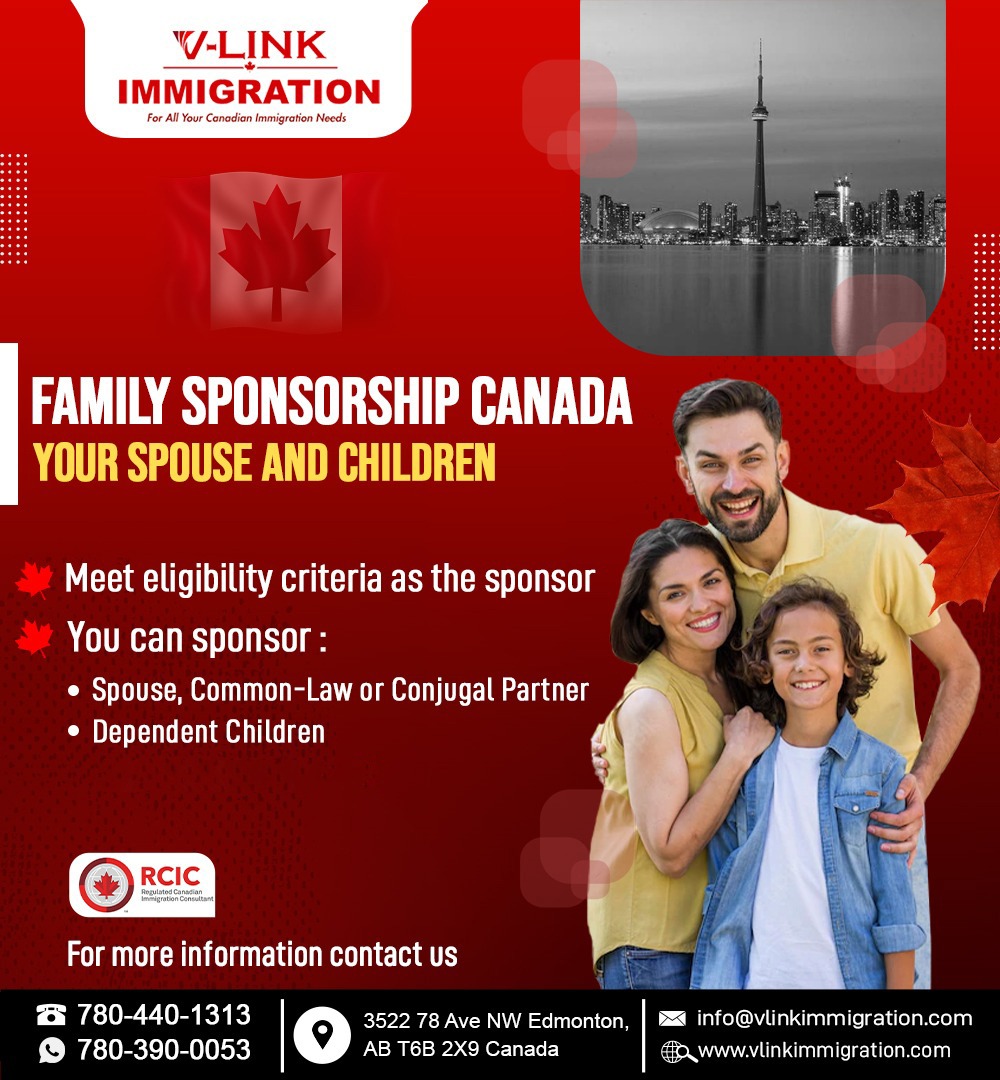Canada is renowned for its welcoming environment, making it an excellent place for raising a family. Central to its immigration policy is the support for family reunification. Through various sponsorship programs, the Canadian government aims to bring families together by offering pathways for relatives to gain permanent residency.
If you are a Canadian citizen or a permanent resident, you may have the opportunity to sponsor your spouse, partner, or dependent children to move to Canada. Here’s a comprehensive guide on how to navigate the family sponsorship process.

Eligibility for Sponsorship
Who Can Be Sponsored? You can sponsor:
- Spouses: Must be legally married and at least 18 years old.
- Common-Law Partners: Must have lived together in a conjugal relationship for at least 12 consecutive months without separation.
- Dependent Children: Must be under 22 years old and not have a spouse or common-law partner. Children over 22 may qualify if they are financially dependent due to a medical condition.
Eligibility Requirements for Sponsors:
- Age and Status: Must be at least 18 years old and either a Canadian citizen or a permanent resident.
- Residence: If living outside Canada, you must intend to return and reside in Canada upon your relative’s arrival. Permanent residents living abroad cannot sponsor.
- Financial Capability: While there are no income requirements for most sponsorships, financial criteria apply if you’re sponsoring a spouse with dependents or if there are additional conditions.
- Other Restrictions: You cannot sponsor if you’re under 18, a temporary resident, currently serving a prison sentence, or have outstanding financial obligations related to immigration.
Application Process To Sponsor A Family Member To Canada
Step 1: Verify Your Eligibility. Ensure you meet all criteria to sponsor your relative. This includes age, residency, and financial conditions.
Step 2: Understand Who You Can Sponsor Confirm that your relative fits the criteria for sponsorship. For example:
- Spouses and Partners: Must be legally married or in a recognized common-law relationship.
- Children: Must be under 22 years old and dependent, if applicable.
Step 3: Complete the Application
- Submit Sponsorship Request: File a request to become a sponsor and complete the application for your relative’s permanent residency.
- Document Checklist: Include all required documents, such as proof of relationship and financial capability. Ensure you pay all applicable fees.
- Application Submission: Submit your application online or through a paper application, ensuring completeness to avoid delays or rejections.
Step 4: After Submission
- Application Review: IRCC will process your application and send you an acknowledgment receipt. They will assess the application, and if selected, will process it further.
- Tracking: Monitor the status of your application and update any changes as necessary.
Step 5: Prepare for Arrival Prepare your family members for their arrival in Canada by ensuring they bring their Confirmation of Permanent Residence (COPR), permanent resident visa, valid passport, and any other necessary documentation.
Special Considerations for Sponsoring Parents or Grandparents
The Parent and Grandparent Program (PGP) allows for the sponsorship of parents and grandparents, though it is subject to annual lottery processes due to high demand and limited spots.
Eligibility:
- Sponsor Requirements: Must be at least 18 years old and a Canadian citizen or permanent resident.
- Proof of Income: Must demonstrate that you meet the Minimum Necessary Income (MNI) requirements.
Super Visa: Alternatively, the Super Visa allows parents and grandparents to visit Canada for up to five years without needing to renew their status frequently. Applicants need:
- Invitation Letter: From their Canadian child or grandchild.
- Proof of Income: Demonstrating the sponsor meets the Low Income Cut-Off (LICO).
- Health Insurance: Evidence of private health insurance coverage for the duration of their stay.
Conclusion
FAQs
When Will I Receive Status Updates?
You will receive updates once you get an Acknowledgment of Receipt (AOR) letter or email. Processing typically takes about a year but can vary.
Who Can Sponsor a Family Member?
Eligible sponsors include Canadian citizens, permanent residents, and registered Indians under the Canadian Indian Act, provided they meet age and financial criteria.
Can I Sponsor a Friend or Fiancé?
Sponsoring friends is not possible under the family sponsorship programs. Fiancés may only be sponsored if they qualify as common-law partners or if they marry.
